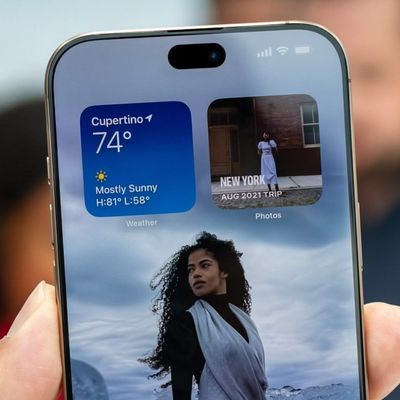Samsung's Galaxy S10 Rumored to Feature 3D Facial Recognition Like Face ID on iPhone X
Israeli startup Mantis Vision is reportedly working with camera module firm Namuga to develop 3D sensing camera solutions for Samsung's tentatively named Galaxy S10, according to Korean news outlet The Bell.

The technology would pave the way for Samsung to implement a 3D facial recognition system on the Galaxy S10, similar to Face ID on the iPhone X. The new Galaxy S9 and Galaxy S9 Plus, which officially launch tomorrow, still rely on a less secure 2D facial recognition system paired with an iris scanner.
Last year, videos surfaced that showed the same 2D solution on the Galaxy S8 could be unlocked by waving a photo of the registered user's face in front of the camera. Samsung even confirmed that its facial recognition solution cannot be used to authenticate access to Samsung Pay or its Secure Folder feature.
By comparison, Face ID uses a structured-light technique that projects a pattern of 30,000 laser dots onto a user's face and measures the distortion to generate an accurate 3D image for authentication. Face ID has been duped with sophisticated masks, but not with a simple photo of a person.
KGI Securities analyst Ming-Chi Kuo recently opined that it would take Android smartphone makers up to two and a half years to catch up with Face ID. Apple released the iPhone X last November, while the Galaxy S10 will likely be released around March or April of 2019, a roughly one-and-a-half year span.
It's a given that Samsung will catch up with Face ID at some point, but it remains to be seen if its 3D facial recognition system can match the iPhone X's user experience. Around this time next year, we should find out.
Popular Stories
In addition to updating many of its existing products, Apple is expected to unveil five all-new products this year, including a smart home hub, a Face ID doorbell, a MacBook with an A18 Pro chip, a foldable iPhone, and augmented reality glasses.
Below, we have recapped rumored features for each product.
Smart Home Hub
Apple home hub (concept)
Apple's long-rumored smart home hub should...
Apple is planning to debut a high-end secondary version of AirPods Pro 3 this year, sitting in the lineup alongside the current model, reports suggest.
Back in September 2025, supply chain analyst Ming-Chi Kuo reported that Apple is planning to introduce a successor to the AirPods Pro 3 in 2026. This would be somewhat unusual since Apple normally waits around three years to make major...
Apple is working on a small, wearable AI pin equipped with multiple cameras, a speaker, and microphones, reports The Information. If it actually launches, the AI pin will likely run the new Siri chatbot that Apple plans to unveil in iOS 27.
The pin is said to be similar in size to an AirTag, with a thin, flat, circular disc shape. It has an aluminum and glass shell, and two cameras at the...
Over the last few months, rumors around the iPhone 18 Pro's front-panel design have been conflicted, with some supply-chain leaks pointing to under-display Face ID, reports suggesting a top-left hole-punch camera, and debate over whether the familiar Dynamic Island will shrink, shift, or disappear entirely.
Today, Weibo-based leaker Instant Digital shared new details that appear to clarify the ...
Apple is expected to release MacBook Pro models with M5 Pro and M5 Max chips soon, but you might want to pass on them, as bigger changes are around the corner.
It has been reported that the MacBook Pro will be receiving a major redesign in late 2026 or in 2027. Six new features have been rumored so far, including an OLED display, touch capabilities, a Dynamic Island, M6 Pro and M6 Max chips...





















